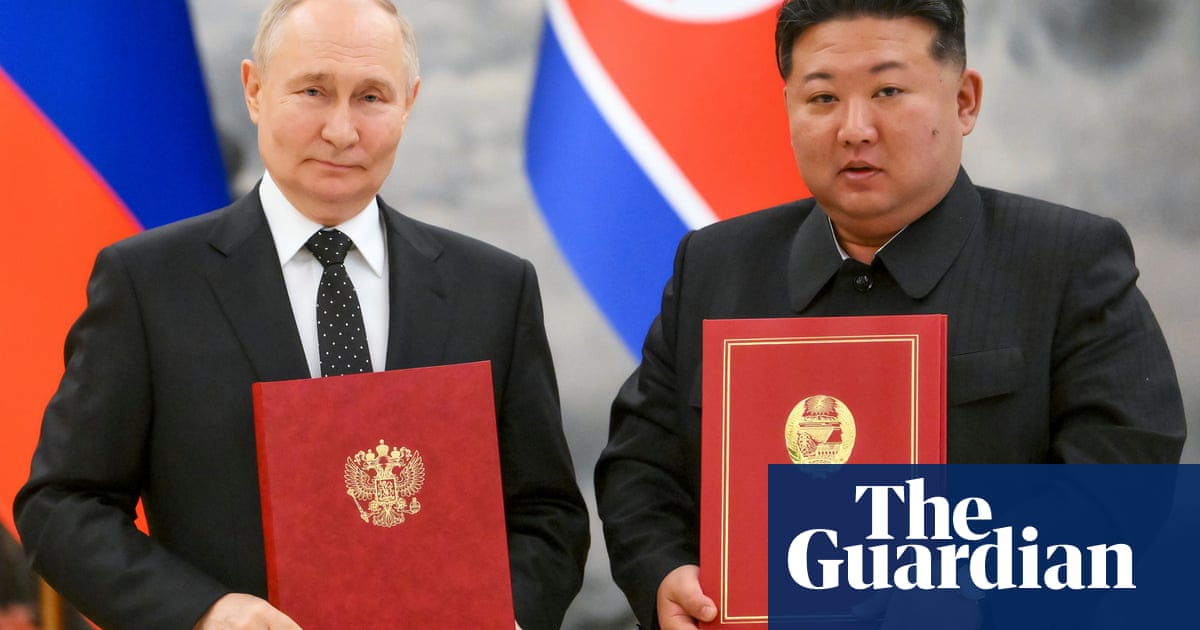Record number of GPs in training for 2025

Natasha May
A record number of GPs will be trained in 2025, the first time in years the specialty has filled all its training positions, which will go some way towards addressing Australia’s GP shortage.
A government report in August, which found that a shortfall of more than 5,000 GPs was expected in the next decade, was the latest in a number of warnings that as more Australians live with chronic conditions, not enough medical graduates are choosing general practice as a career.
However, the Royal Australian College of GPs (RACGP) has today confirmed the trend is turning around, with 1,504 junior doctors having accepted specialist training through the college’s program. It represents an increase of 20% – or 249 trainees – on 2024.
The signs are also positive for the regional and remote areas the government report found were most at risk from the shortage, with 844 trainees accepting a general training pathway, 583 a rural pathway, and 77 composite rural placements.
Key events Show key events only Please turn on JavaScript to use this feature
Coalition continues attack on government regarding nuclear deal decision
s senator Matt Canavan was up on the Today Show earlier this morning, continuing to criticise the government for not signing up to a civil nuclear deal signed between the US and UK.
As Adam Morton reports, the UK government has conceded Australia was mistakenly included on a list of countries expected to sign up to the deal, and in parliament yesterday, acting prime minister Richard Marles said the deal goes to nuclear reactors which provide energy to electricity grids, and “we do not have that in this country, and so as a result … this agreement is not relevant to Australia.”
But today, Canavan is insisting Australia should have joined, telling the program:
I don’t want to concern you, Karl [Stefanovic], but you’re sitting only 30km from a nuclear reactor at Lucas Heights in Sydney. We have some of the best nuclear scientists in the world. And sure, it doesn’t produce nuclear energy, but it produces some of the world’s best nuclear medicines. And because of that expertise, we have always been involved in these international developments to look at new nuclear technologies which might help us make better nuclear medicines in the future.
And of course, the current government is buying eight nuclear submarines. And so why shouldn’t we be involved in a in an international discussion about nuclear technologies? What the hell is going on?

Canavan argued that the prime minister should “recall Chris Bowen here and override this for our national security.”
It seems like it’s been a decision made by just the energy minister. Has this been considered by the cabinet? Has this been considered by the whole of government? Because there are a whole lot of other questions that arise here about why the government is making this decision. The only explanation is they’re doing so for pure domestic political purposes.
Gender pay gap data reveals Australia’s female CEOs paid $170,000 less than men on average
Circling back to Jim Chalmers’ economic statement to parliament today, one of the claims he’ll make is that the gender pay gap is at a record low.
According to government figures today, the pay gap is 21.1%, an improvement on last year’s figure (21.7%). However, when the pay of chief executives and heads of business is included, which is how the data has been calculated in all previous years, the figure is higher at 21.8%.
Our story today leads on the gap in top pay with women CEOs earning $170,000 less than male counterparts. Here’s the full story:
Number of vacant rentals highest level in more than a year

Cait Kelly
The number of vacant rentals nationally has jumped to its highest level since July 2023, according to the latest PropTrack Market Insight Report.
The report found that the national rental vacancy rate increased by 0.19% points (ppt) in October to 1.36%, as capital city vacancies rose 0.33ppt year-on-year, while regional areas saw a 0.13ppt decline over the same period.
A healthy vacancy rate is widely regarded to be 3%.

REA Group senior economist Anne Flaherty said:
Rental conditions improved in all capital cities and regional markets over October, with the national vacancy rate now 0.21ppt higher than at the same time last year. Despite the improvement, rental supply remains well below pre-pandemic levels, with 35% fewer properties available for rent.
While rental supply improved across both capital city and regional markets in October, there has been greater relief for renters in cities. Over the past year, vacancy rates in capital cities rose by 0.33ppt, while the combined regional areas remain 0.13ppt lower than a year ago.
Compared to March 2020, there were 45% fewer properties available for rent in Australia’s regional areas compared to a 32% drop in the capital cities.
Good morning

Emily Wind
Emily Wind here, signing on for blogging duties as we reach the halfway point of the second-last sitting week of this year.
You’ll have the whole Canberra team bringing you the latest today – Karen Middleton, Paul Karp, Josh Butler and Sarah Basford Canales.
Let’s get started.
The politics of Australian electoral reform – Full Story podcast
Big money and politics seem to go hand in hand, but the government wants to pass new electoral reform laws that they say will keep cashed-up donors out of federal politics. The detail has independents and minor parties crying foul.
In today’s Full Story podcast, Guardian Australia chief political correspondent Paul Karp speaks to Reged Ahmed about why Labor and the Coalition have been accused of cooking up a “secret deal” on new electoral rules.
Another area where the two main parties agree in theory is international student caps. But they’ve managed to fall out a bit.
Our explainer today looks at what’s behind the stoush.
Chalmers says ‘optimism is warranted’ on economy

Paul Karp
The treasurer, Jim Chalmers, will today deliver an economic statement to parliament setting out the progress the government has made on key indicators and causes for optimism about the economy and the budget.
In advance excerpts released by his office, Chalmers will claim that inflation has more than halved, real wages are growing again and the economy is expanding. He will say that one million new jobs have been created and that two huge deficits have been turned into two substantial surpluses.
At every stage we have been upfront about the nature and magnitude of our economic challenges. Even with very substantial progress in the aggregate numbers, we know that doesn’t always translate to how people are faring and feeling day-to-day.
We’re not pretending its mission accomplished – it isn’t. We are realistic about this, but optimistic too. Today as I provide a stocktake of the global and domestic economy preview the mid-year update which we will hand down in December. And outline our policies and plans. I will explain why that very cautious confidence and emerging optimism is welcome and warranted.
Of course the bit they’ve given us doesn’t tell us what’s in the mid-year economic update. You’ll just have to tune in at midday, and then again in mid-December for that. It’s forward sizzle. It’s the advent calendar approach, you can’t have all your chocolates at once.


Natasha May
More on the record number of GPs in training
The RACGP president, Dr Nicole Higgins, said the increased number of GPs in training is a reflection of how the government has provided the college with the flexibility and the funding to accommodate prospective trainees.
Higgins praised the government’s rapid support for requests including funding for accommodation, travel and childcare that allowed the college to place 177 general GPs in training in rural communities that had not had a registrar in years.
However, she warned the government must make lasting investments to tackle Australia’s GP shortage and ensure Australians can see a GP regularly:
This 20% growth in GPs in training is a sign the GP workforce is recovering. But it can’t be taken as a sign the job is done. The story we’ve been told, and that we’ve often told each other as GPs, is one of general practice in decline. These training results show us we can turn that around with the right investments, because funding general practice gets results.
The college is calling on the government to link the allocation of government-subsidised medical places to a target of 50% of graduates training as GPs, fund 500 more training program places for the RACGP over the next five years and ensure GPs in training have equal pay and work entitlements to other medical specialists in training.
Record number of GPs in training for 2025

Natasha May
A record number of GPs will be trained in 2025, the first time in years the specialty has filled all its training positions, which will go some way towards addressing Australia’s GP shortage.
A government report in August, which found that a shortfall of more than 5,000 GPs was expected in the next decade, was the latest in a number of warnings that as more Australians live with chronic conditions, not enough medical graduates are choosing general practice as a career.
However, the Royal Australian College of GPs (RACGP) has today confirmed the trend is turning around, with 1,504 junior doctors having accepted specialist training through the college’s program. It represents an increase of 20% – or 249 trainees – on 2024.
The signs are also positive for the regional and remote areas the government report found were most at risk from the shortage, with 844 trainees accepting a general training pathway, 583 a rural pathway, and 77 composite rural placements.
Welcome
Good morning and welcome to our live politics blog. I’m Martin Farrer with the best of the overnight stories before Emily Wind takes the reins.
The climate change minister, Chris Bowen, has declared the landmark Paris agreement “is working” as it had brought the world back from “the brink of catastrophic 4C warming”, but argued countries must set the most ambitious emissions targets possible for 2035 to limit worsening global heating. Speaking at the Cop29 summit in Baku, Bowen also pledged $50m towards a global loss and damage fund to help the world’s most vulnerable people to repair the damage from climate breakdown. Reaction coming up.
KiiS FM, the radio station that is home to the graphic and at times derisive Kyle and Jackie O show, this year attracted the biggest share of listeners aged 10 to 17, Guardian Australia can reveal. That is more than 200,000 children and teenagers listening to the station in Sydney alone. But despite children being exposed to inappropriate material on the station’s top-rating show, the Australian Communications and Media Authority has failed to launch its own investigation into the program.
A record number of GPs will be trained in 2025, the first time in years the specialty has filled all its training positions, which will go some way towards addressing Australia’s GP shortage. More details coming up.
The treasurer, Jim Chalmers, will spruik the government’s economic achievements in parliament today. He will claim that inflation has more than halved, real wages are growing again and the economy is expanding. He will also claim that the gender pay gap is at a record low although there is a little bit more to those figures than meets the eye as our story on the subject reveals. More coming up.

 3 days ago
3 days ago


















